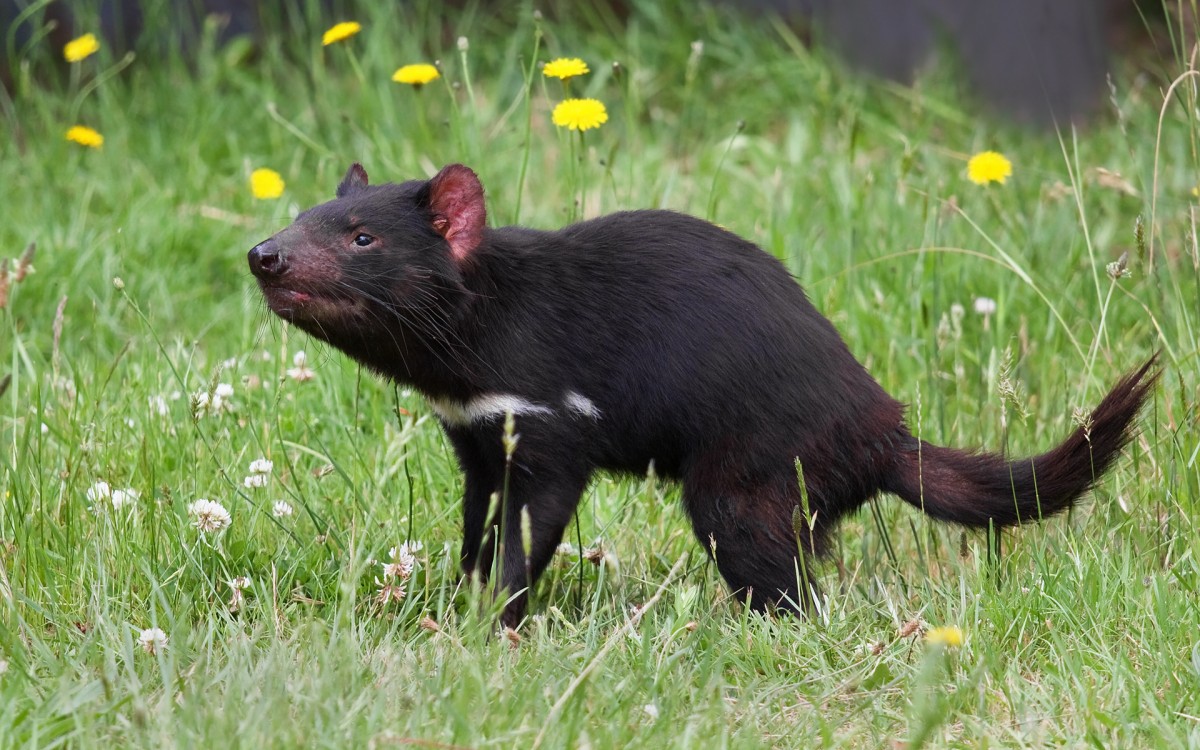An example of a Tasmanian devil shows that cancer can become a contagious disease in humans

Tasmanian devil The
studies of scientists described in several recent scientific papers suggest that cancerous tumors can develop the ability not only to metastasize to neighboring organs, but also be transmitted from one person to another.
Despite a long and persistent search, a cure for cancer has not yet been found. Research is also hindered by the fact that there is no generally accepted idea of the causes of the appearance of malignant tumors in the human body. But some scientists are already trying to look into the future of the disease.
Now, if a tumor appears in the body, it begins its “life” from scratch, and, developing, destroys its carrier (if it is not removed on time). In the next organism, the tumor starts over again. If we believe the opinion of researchers, then there may appear such varieties of cancer that travel from carrier to carrier, evolving and improving along the way.
So far, no such cases have been recorded in humans. True, similar incidents have already happened: one laboratory assistant was injected with a syringe with tissue samples, and a tumor developed in his hand. Another doctor, a surgeon, cut himself during an operation on a patient with a cancerous tumor. Naturally, there have been cases of cancer transmission during organ transplants or during pregnancy, from mother to fetus.
The story of cancer transmission between animals is a bit richer. For example, in laboratory experiments, mosquitoes were able to transfer cancer cells between hamsters. But in dogs there is a form of cancer that is sexually transmitted, which, according to scientists, appeared for the first time more than 11,000 years ago.
It is believed that such cancer developed due to a rather long sexual intercourse between animals - but some researchers argue that it was a new type of cancer that could somehow influence the lengthening of this process in order to travel freely from one organism to another.
Another type of infectious cancer exists in cute animals called the Tasmanian devil.(or marsupial hell). During numerous fights between individuals, cancer is transmitted through wounds on the face . Emerging tumors threaten this species with extinction.
Interestingly, in December 2015, experts from Cambridge and the University of Tasmania published a study that described the detection of a second type of cancer transmitted between individuals of Tasmanian devils. How two genetically different types of contagious cancer appeared in their organisms remains incomprehensible.
According to one version, because of the small population, their genetic diversity is so small that foreign cancer cells that entered the body were not detected by the immune system and freely mutated into something else. And another version claims that the appearance of infectious cancers is not such a rare occurrence in nature, and that it is necessary to pay close attention to the study of this possibility.
Cancer may have existed as long as multicellular organisms, and the relatively short life of individual individuals interferes with the emergence of a common form of infectious cancer - otherwise cancer would be a universal occurrence. In any case, this area of research seems quite promising.
